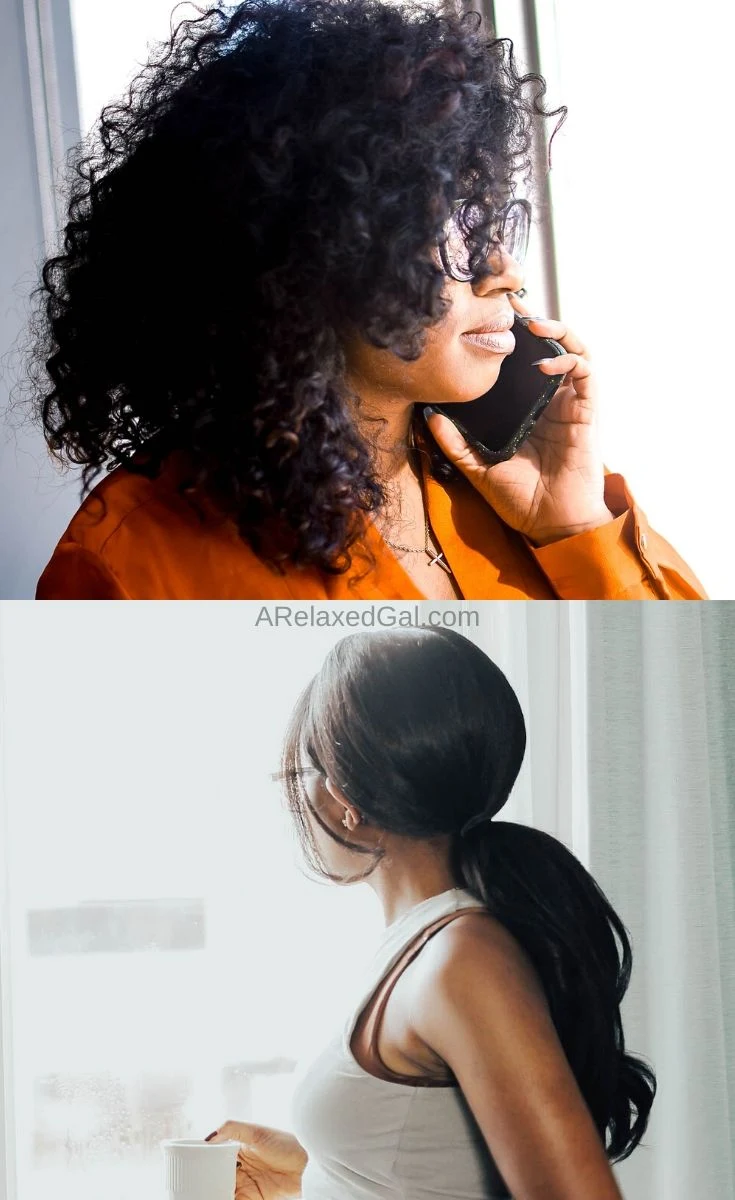The crazy thing is now every week there seem to be one or two more ladies making the shift from natural to relaxed either for the first time or again. Some of those have been well-known YouTubers who went natural and are now relaxed again.
I belong to a few Relaxed Hair groups and even there I’ve been seeing more and more posts of women who have been natural for years now but decided to transition to relaxed hair and are asking for advice.
(This post includes some affiliate links. If you click an affiliate link and make a purchase I may receive a small commission.)
That got me thinking about what advice I would give to those who are newly relaxed. While hair is hair, and there are many similarities in caring for relaxed and natural hair there are a few things that are different.
Here are 7 things to keep in mind if you’ve relaxed your hair for the first time or are returning to relaxed hair after being natural for a while.
1. Your hair going to need to adjust
A relaxer is a chemical that changes the makeup of your hair so after the first application, it’s not uncommon for the hair to be in shock for a while. So don’t be surprised if you experience some shedding after you first relax.2. You’ll have to relearn your hair
Once you add the chemicals to your hair, the makeup of your hair can shift slightly or more drastically. In particular the porosity of your hair. You can learn more about hair porosity here.After getting your first relaxer do a porosity hair test. Knowing your relaxed hair’s porosity will help you determine what changes, if any, may be needed to your hair regimen and products.
3. You may need to change your hair products
When you were natural you may have had a set roster of products that worked for you. The good thing is some of those products may still work for your relaxed hair. The sad thing is some of those products may not work the same on your relaxed hair and some products like curling and coiling custards you probably won’t need anymore.Before going out and buying all new products do a test and learn phase first. Determine the porosity of your relaxed hair and use that as a starting point to weed out some hair products. From there you’ll probably need to use the remaining products and see how your relaxed hair reacts. The ones your hair reacts well to keep the others you can replace with new ones you find.
4. Ease into relaxer stretching
Once you jump into the relaxed hair world you will probably see and read a lot about relaxer stretching. My advice is to not jump right in. Because with relaxer stretching you’re dealing with two textures and right now you’re still learning your relaxed hair.For anyone starting to relaxer stretch, I would suggest starting slow by starting with 6 or 8 weeks and then stretching an extra week after each touch-up till your hair lets you know it’s time to stop.
5. Don’t use a lot of heat
Just like your natural hair, relaxed hair can still be naturally dry and can be easily damaged. While it’s best to stay away from heat altogether I know for some, like me, using some heat provides better results overall. So keep heat usage to a minimum, don’t use it every day, and when you do use heat use a heat protectant.6. Still work to keep hair moisturized
There are a few key ways to accomplish this. One is to moisturize and seal regularly. This may mean every day or every few days. It will depend on your hair type and what your hair needs.The other is to deep condition on the regular. I know for the majority of the time I was relaxed and deep conditioned whenever I happened to get my hands on a sample or had a trip to the salon. Not good.




0 comments
Spam comments and comments with links promoting other sites will be deleted by the moderator.